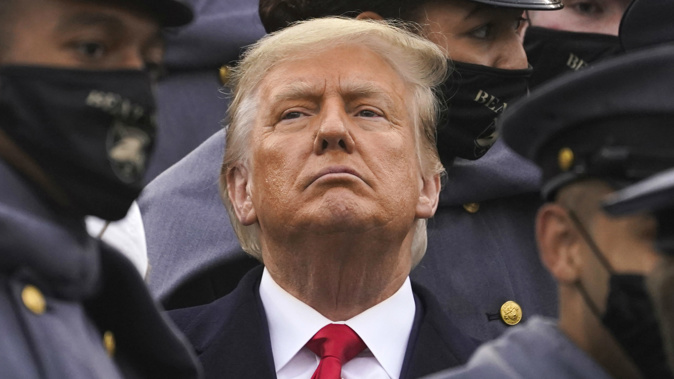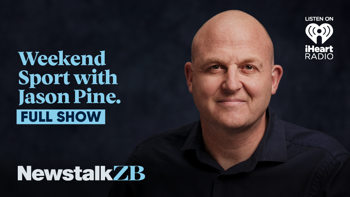
President Donald Trump received an unsettling warning on his final Saturday night in the White House.
Huddled for a lengthy meeting with his legal advisers, Trump was warned the pardons he once hoped to bestow upon his family and even himself would place him in a legally perilous position, convey the appearance of guilt and potentially make him more vulnerable to reprisals.
So, too, was Trump warned that pardons for Republican lawmakers who had sought them for their role in the Capitol insurrection would anger the very Senate Republicans who will determine his fate in an upcoming impeachment trial.
White House counsel Pat Cipollone and another attorney who represented Trump in his first impeachment trial, Eric Herschmann, offered the grave warnings as Trump, his daughter Ivanka and her husband Jared Kushner listened. Other lawyers joined by telephone. They all told Trump he should not pardon himself, his family or any GOP lawmakers in a prospective manner unless he was prepared to list specific crimes.
Cipollone and former Attorney General William Barr both warned Trump earlier this month they did not believe he should pardon himself, multiple sources familiar with the matter told CNN last week. Barr conveyed this position to Trump before resigning last month, sources say.
Trump continued to bring the matter up in the ensuing days, even after officials believed the issue was resolved. But the sobering meeting on Saturday evening at the White House seemed to put the idea to rest.
While Trump often discards advice he doesn't agree with -- particularly coming from Cipollone, with whom he has a fractured relationship -- the message Saturday resonated. The conversation spooked Trump in a way few others have, a person familiar with his reaction told CNN.
Now, Trump will leave office muted and disheartened at being unable to wield the power he has cherished most while president. Boxed in by his own actions that helped spark the riots at the Capitol, Trump finds himself constrained in a way he mostly avoided for his entire tenure.
His final batch of pardons, due later Tuesday, is expected to contain few of the controversial or outlandish criminals that have characterized his earlier use of his clemency powers.
Trump could still change his mind, and retains his sweeping clemency powers until noon on Wednesday. The President continues to bring up pardons that aides once thought were off the table, including for former strategist Steve Bannon, leading to general uncertainty about whether Trump will continue adhering to his lawyers' advice.
There is a frantic scramble happening behind the scenes on whether to grant Bannon a pardon. One concern is Bannon's possible connection to the January 6 riot of Trump supporters at the US Capitol, according to a source familiar with the discussions.
Trump has continued to go back and forth on Bannon's pardon into Tuesday night, sources told CNN.
Earlier Tuesday, White House officials and others familiar with the matter describe a muted President, concerned about his pending impeachment trial and swirling legal problems, who was talked out of his long-discussed notions following the Capitol insurrection.
Several Republican lawmakers who are alleged to have been involved in the rally that preceded the deadly riot on the US Capitol have sought clemency from Trump before he leaves office, but after meeting with his legal advisers for several hours on Saturday, the President decided he would not grant them, according to two people familiar with his plans.
The fear of legal exposure is not limited to Republicans who promoted or spoke at the rally, including Reps. Andy Biggs, Mo Brooks and Paul Gosar. Those who participated, organized and fundraised for it are also concerned, sources told CNN, including his eldest son Donald Trump Jr. and his girlfriend Kimberly Guilfoyle, who both spoke at the rally.
Top figures associated with the groups that helped organize it -- including Women for America First and Turning Point Action, the political action committee arm of Turning Point USA -- have also voiced private concern about legal repercussions, a person familiar tells CNN.
Several of Trump's closest advisers have also urged him not to grant clemency to anyone who breached the US Capitol, despite Trump's initial stance that those involved had done nothing wrong.
As CNN has previously reported, one of the top organizers of the movement that aimed to overturn the election results claimed he worked closely with Republican congressmen. Ali Alexander, a leader of the "Stop the Steal" group, said in several livestream videos he planned the rally with Gosar of Arizona, Brooks of Alabama and Biggs of Arizona.
The idea of pardoning himself has captivated Trump nearly the entire span of his presidency. He viewed the prospect as a unilateral magic wand he believed could ease his legal troubles, if not make them disappear entirely.
Almost as alluring: preemptive clemency for members of his family, who Trump has long bemoaned were being unfairly targeted by his enemies. Rendering them immune from retribution seemed like a raised middle finger to his detractors.
The legal standing of either move was questionable, and Cipollone had been "direct and strong" that a self-pardon was unlikely to hold up in court, a person familiar with the matter said. Internally, one of Cipollone's legacy items is believed to be whether he dissuades Trump from pardoning himself.
Others appealed to Trump by warning he should be more concerned about the effect it would have his legacy, not the legal standing of the pardons.
The decision to not pardon any Republican lawmakers or his family members was a last minute one. After initially defending the idea that he may pardon himself or his family members out of concern they would be targeted once he's out of office, Trump decided Saturday night that he would not pardon anyone in his family or himself.
Trump agreed with the attorneys and other advisers that doing so would increase the appearance of guilt and could make them more vulnerable, but was disappointed at the outcome, according to people familiar with the matter.
Trump, according to people he'd spoken to, appeared more taken with the message of unchecked power it might send to his naysayers than actual protection from liability. His pardon power was among his favorite perks of the job.
Trump will depart office facing significant legal questions that only escalated during his final days in office. His phone call to Georgia's secretary of state urging him to "find" votes and his speech encouraging his crowd to "show strength" in their march to the Capitol have both put him under a legal microscope.
The new possible criminal exposure comes on top of ongoing New York state investigations into the President's finances and multiple defamation lawsuits related to Trump denying sexual assault accusations by women. The Manhattan district attorney's office has a broad criminal investigation looking into allegations of insurance fraud and tax fraud. The New York attorney general has a civil investigation into whether the Trump Organization improperly inflated the value of its assets.
The sizable legal store the President now enters provided the looming backdrop to his ongoing discussion of pardons, which began in earnest last year.
Over the past weeks, Trump has discussed pardons incessantly with associates, often asking if people who had not been accused of any crime wanted one before he left office. The discussions unnerved some aides, who did not believe they were in line for prosecution.
Even as recently as Monday, with hours remaining in his presidency, Trump appeared fixated on pardons.
While he was considering preemptive pardons for his children and his personal attorney Rudy Giuliani, a source close to the process said those are no longer expected. Bannon, who has been indicted on fraud charges, is also not expected to receive a pardon on Tuesday, the source said.
Trump is also not expected to pardon Edward Snowden or Julian Assange, whose roles in revealing US secrets infuriated official Washington.
While he had once entertained the idea, Trump decided against it because he did not want to anger Senate Republicans who will soon determine whether he's convicted during his Senate trial. Multiple GOP lawmakers had sent messages through aides that they felt strongly about not granting clemency to Assange or Snowden.
As he departs office, Trump has expressed real concern that Republicans could turn on him. A conviction in the Senate impeachment trial would limit his future political activities and strip him of some of the government perks of being an ex-president.
Trump is less worried about being barred from running from office again, and more concerned with the optics of being convicted by the Senate, people familiar with the matter said.
text by Kaitlan Collins, Kevin Liptak and Pamela Brown, CNN
Take your Radio, Podcasts and Music with you









